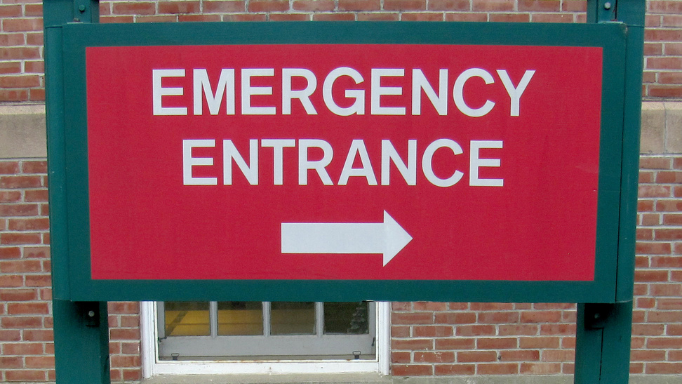
By Christina Harlow
Since the fall, emergency departments across Vermont are being overcrowded with patients. There are many reasons for this. First, we are in a “triple-demic” with RSV, Covid, and Influenza affecting a lot of people in the state. Some people go to the emergency department because there is a delay to see their primary care provider. This delay can lead to a patient becoming sicker or they have run out of the daily medications for their chronic conditions.
I don’t want anybody to ever feel that they can’t go to the ER. However, there are lots of times when you might be able to manage your symptoms at home. If you are healthy and you have a fever, body aches, dry cough, and mild sore throat, it is likely a viral illness and it’s okay to stay home and take over-the-counter medications. I highly recommend Tylenol and ibuprofen for fever and body aches. Drink lots of fluids and let your body rest. Hot tea, honey and other home remedies can be helpful too.
People who have flu symptoms may want to go to the ED to receive antiviral treatments, but the evidence doesn’t really support that they’re effective for healthy people. Antivirals are best served in people who have underlying illnesses and even in these people, the evidence is conflicting. People over 65, under 2 and people who are pregnant are the ones who may benefit most from an antiviral.
Antivirals don’t prevent illness, but they can shorten its duration. In adults, they shorten the illness by approximately 17 hours and approximately 24 hours in children. However, there are also severe side effects that sometimes go along with antivirals such as nausea, diarrhea and belly pain, as well as some cases of psychosis.
For all three conditions (Covid, RSV, and influenza) the treatment is mostly supportive, meaning OTC (over-the-counter) medications, rest and fluids. Medications may be indicated on a case-by-case basis.
So when should you go to the Emergency Department and get checked out? Anyone under the age of 2, pregnant, or over the age of 65; is more likely to have complications related to viral illnesses. This is also true if you have chronic diseases like COPD, asthma, diabetes or heart problems. If you’re really short of breath, getting worse each day instead of better or have unusual symptoms like vision changes, chest pain or severe symptoms, please come in.
Two other occurrences require a trip to the Emergency Department.
The first is a mental health situation. This is a growing problem because we have more and more people in crisis related to the pandemic and feeling isolated. Substance use disorders have grown. People are using more substances than they used to and at younger ages. The ED right now is the catchment for people in crisis. We are safe, but it is not the most therapeutic environment. This isn’t something that just affects Gifford, it’s a Vermont-wide issue. The state and a group of ER directors meet a couple of times a month to figure out how it can best take care of people presenting to the ERs in crisis. Anyone who is feeling suicidal should be urgently screened by a mental health professional. If there is not one immediately available, then that patient should be seen in the ER.
We are trying to find solutions so people are not in the ER for multiple days and can be helped sooner. Gifford has a telepsychiatry program in the ER. When our wonderful therapists in behavioral health are not available to us on nights and weekends, we have a psychiatrist who will see the patients via the telemedicine system. We also work closely, of course, with our local psychiatric providers and crisis screeners.
Sexual Assault cases should go directly to the ER. Through our recently rebooted SANE program, a trained forensic nurse will walk you through the steps of the Forensic Medical Exam. You can choose to do as much or as little of the exam as you wish. If you have experienced a sexual assault, it is important to get medical care as soon as possible. This care can prevent pregnancy and sexually transmitted infections. If the assault happened less than 5 days ago, you may have forensic evidence collected. You shouldn’t shower, bathe or change clothes, but you can still be seen and receive care even if you do.
Like Emergency Departments, Urgent Care facilities are just as busy, but they are also well-equipped to handle colds, coughs and other viral illnesses. Emergency rooms are probably better for situations where you would need to be admitted to the hospital, such as trauma and chest pain. Urgent care is also good for things like cuts, sprains or other minor injuries.
We don’t have an urgent care right in Randolph, although Gifford only has a Saturday clinic that takes walk-in patients and patients by appointment.
We are a small critical access hospital, and we have many resources. It’s what makes Gifford stand out. But Gifford, like other hospitals in the region, is experiencing long wait times and high capacity. To be able to treat our most critical patients in a timely and effective manner, we want our community to understand this issue and assist us in decreasing the amount of unnecessary Emergency Department visits.

